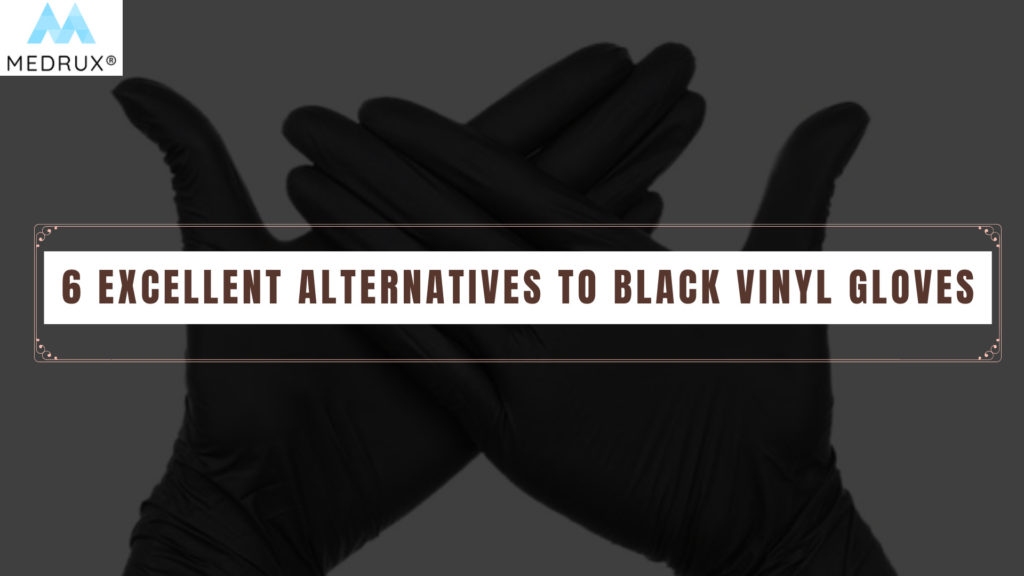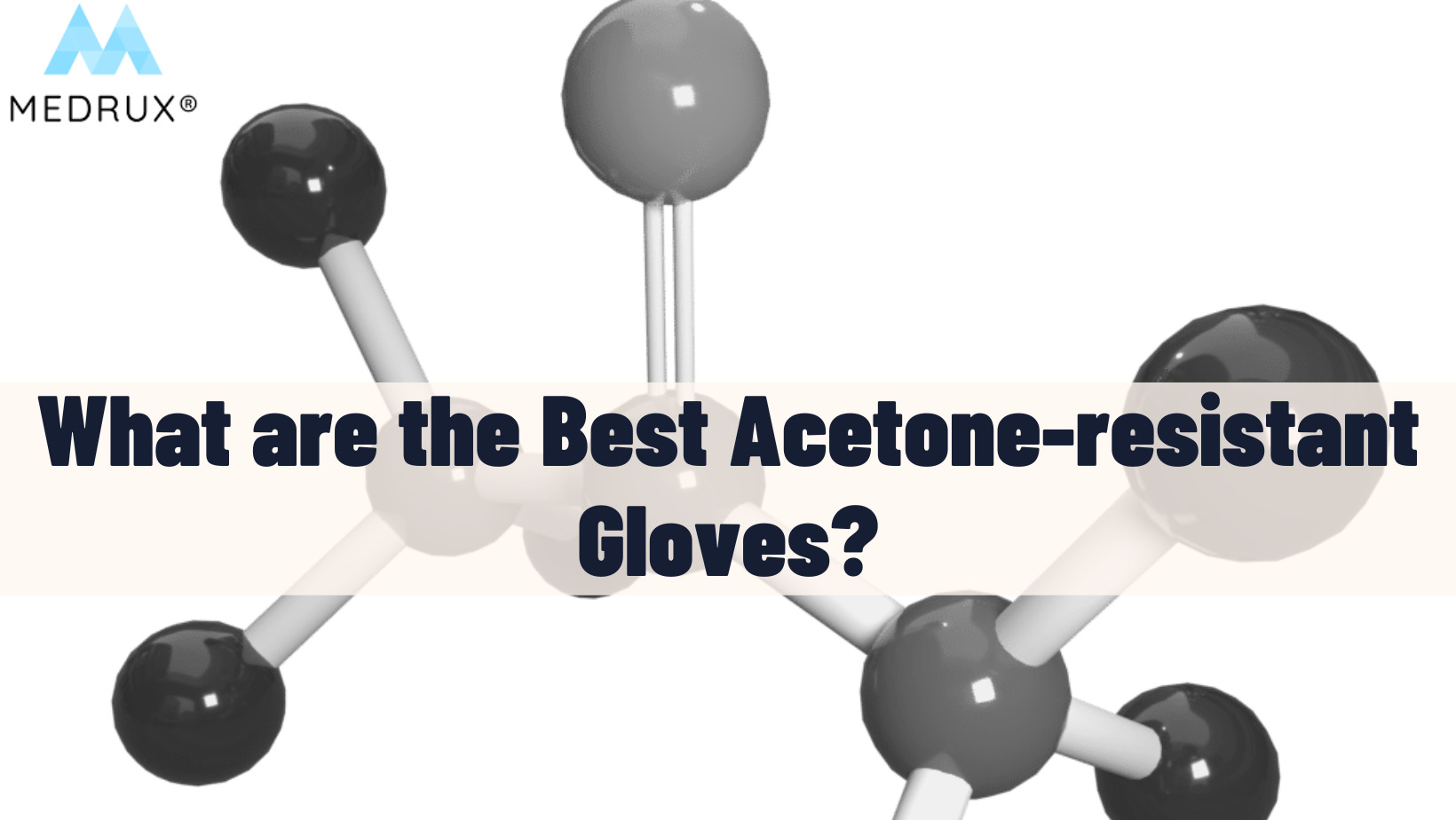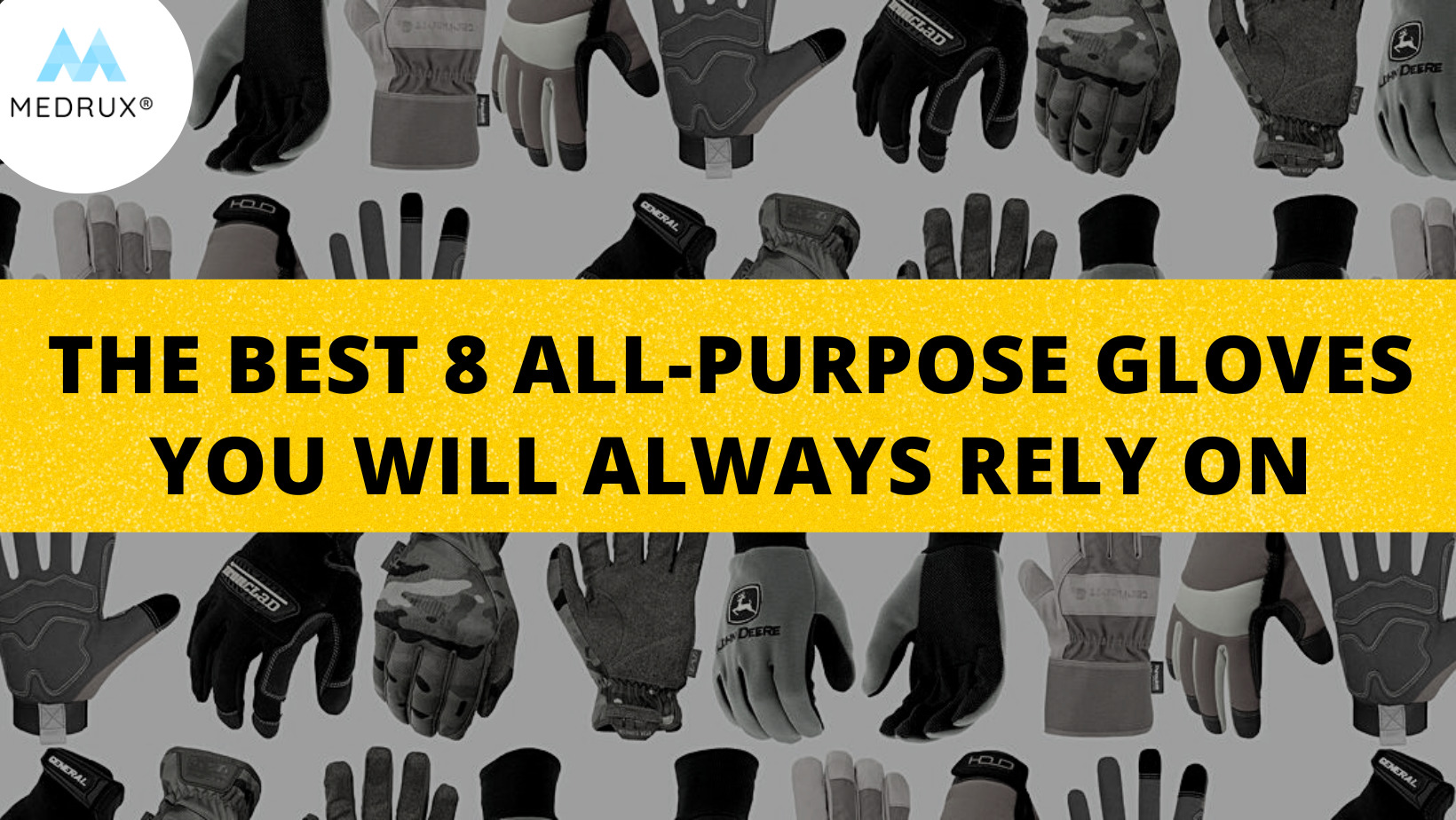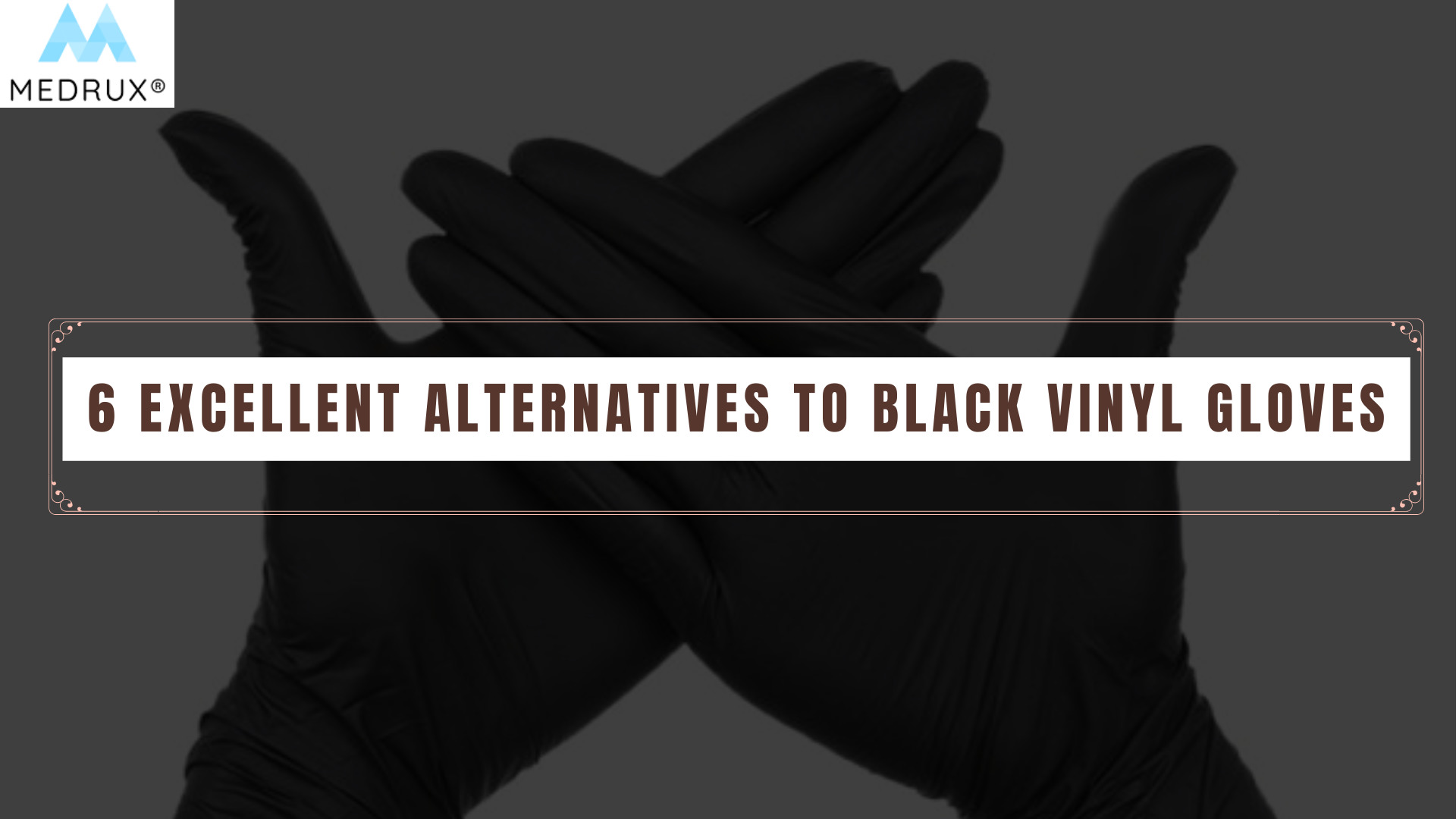There’s no place now that doesn’t use the black vinyl gloves, be it a medical institution, laboratories, restaurants, hairdressers, or a home care facility.
Not only in work-related environments!
Our daily chores now require wearing gloves!
For instance, washing the dishes, doing the laundry, cooking delicious food for your family, cleaning and looking after the planets in your garden.
The number of chemical hazards, microorganisms & infections around us made it inevitable to protect ourselves and our loved ones!
Our hands are one factor in many other possible reasons that could cause us infection; thus, protecting our hands by using gloves is very important.
Gloves protect us from hazards and infection and watch other people from getting infections through cross-contamination.
Furthermore, they provide comfort and the ability to perform your tasks well while wearing them.
For this purpose, black vinyl gloves and many other types come in.!
Nowadays, environmental consideration is playing a role in our daily life choices,
Sometimes you ask yourself, will this glove somehow affect the environment badly?
How should I get rid of this glove?
To put it another way, concerns related to glove use, including food safety & plastic pollution, are widely circulating in your mind.
In short, your questions are valid and need answers; together, we will go through them in this article.
To illustrate, most gloves are either natural or synthetic rubber containing plasticizers, chemicals, and many other additives.
With huge demand and increased usage of gloves in the past two years owing to the COVID-19 pandemic, there was a dramatic increase in the rates of plastic pollution as disposable gloves and PPE found their way back to our oceans.
What will we cover in this article?
This article will explore black vinyl gloves, their composition, and their uses.
We will dive into the red flags raised around black vinyl gloves and, most importantly, are they the best option if you’re someone who cares about the environment.
Let’s see together.
What are black vinyl gloves? And what are the applications?
Black vinyl gloves are synthetic plastic polymers, also called PVC gloves.
Why? Because Polyvinyl Chloride is the primary composition material.
Polyvinyl chloride is the world’s third-most widely produced synthetic polymer in plastic.
It consists of two main ingredients, ethylene and chloride are merged and, with several chemical reactions, create the PVC, which is then used to make black vinyl gloves.
They’re used in low-risk health care applications, food handling, cleaning jobs, and simple assembly and manufacturing tasks.
What are the advantages of using black vinyl gloves?
Black Vinyl gloves have multiple advantages making them so popular over the years.
One of their most significant advantages is they are very affordable.
They are the least expensive gloves out there, mainly because they’re purchased in huge quantities.
Additionally, they can withstand long storage periods & shelf life, and their plasticizers don’t go weak or break with time.
What’s more, they’re lightweight and easy to wear w, making them perfect for light and low-risk tasks.
Alternatively, they are waterproof and resistant to chemicals and oils to a certain degree.
They are very compelling alternatives for those who suffer from latex allergies. Why?
They don’t contain latex or traces of latex proteins; hence, they won’t cause or trigger latex allergy.
Likewise, they don’t contain chemical accelerators, so they’re still widely used in many workplaces where allergies may happen.
Bottom line:
Black vinyl gloves are trendy and affordable synthetic gloves produced in vast amounts for different industries.
They provide adequate protection in simple tasks that don’t involve high contamination risks or injuries and don’t need long-term usage.
They’re also very suitable for people with latex allergies.
A lower price always comes with a cost!
You might be asking yourself if black vinyl is so great. Why should I look for an alternative?
Let’s dig into their drawbacks and why they have raised red flags worldwide.
Why should you consider alternatives to black vinyl gloves?
Most materials use chemicals called accelerators to improve their elasticity and durability.
While vinyl polymers are not cross-linked and don’t contain accelerators, we found a lot of drawbacks to be an issue when using vinyl gloves.
Why is that?
The vinyl molecules tend to separate if they are stretched or flexed, unlike other molecules such as nitrile, which are highly elastic due to the acceleration materials added.
That is to say, this doesn’t make them very durable, and they could have tears, punctures, and holes easily.
Equally, they don’t return to their original shape after being stretched.
Does it cause a problem?
Yes, it does.
They suddenly have baggy cuffs around the wrist, compromising the protection needed!
And, of course, they get baggy around the fingers when used for a long time, which might make them uncomfortable and hinder performing the tasks efficiently.
What is the protection level of black vinyl gloves against microbes?
In terms of protection, they don’t provide adequate protection against chemical and biochemical materials.
Why?
They have high permeability, meaning they are more vulnerable to bacteria and viruses, and antineoplastic cytotoxic materials.
In addition, they’re not highly resistant to many chemicals such as glutaraldehyde-based products and alcohols used in disinfectants.
For these reasons, you should not use it in healthcare facilities or medical professions, where a certain level of protection against bacteria and infections is essential for the healthcare professional and the patient.
What about food safety?
Black vinyl gloves have been widely used in the food industry for a long time.
But with time, vinyl gloves have raised many issues and safety warnings when handling food. And people have been asking that question a lot.
Are black vinyl gloves the best option when it comes to handling food?
Over the past years, significant safety concerns have been raised in the food industries regarding using black vinyl gloves in preparing food because of their heavy chlorine content.
When a person is wearing black vinyl gloves while handling food, black vinyl gloves could leach chemicals such as phthalates & BPA (Bisphenol A) into the food we could ingest.
So, what are phthalates, and what’s wrong with consuming them?
Phthalates are chemicals added to gloves to make them more flexible.
Because these plasticizers are not chemically bound to the glove, they could easily slip out of the glove and transfer to the food you are about to eat.
Many phthalates are now banned or restricted from use in various products worldwide!
Multiple studies showed that phthalates are carcinogenic when ingested; they can lead to heart disease and cancer and affect reproductive health and brain development.
I.n view of these facts, they banned black vinyl gloves in the European Union for use in food industries in 2008.
It’s also banned in both China and Japan.
Although Some vinyl gloves are made to be phthalate-free, you can never be sure due to the mass production of these gloves, which glove has them and which doesn’t.
Black vinyl gloves are not very durable or resistant to punctures and tears.
When stretched or used for a long time, the protection they are supposed to be providing is breaking.
They can also leach harmful materials into your food, so If you work in a healthcare facility or food industry, it’s not the wisest choice to use black vinyl gloves after they have been banned from usage in many countries.
How about the environment?
Global warming is now a significant concern for all of us, with plastics invading our oceans and causing our marine life to die slowly.
What is black vinyl gloves’ role in these issues, and how does it affects the world around us?
Let’s find out…
Polyvinyl Chloride is a type of plastic made from polymers extracted from crude oils.
So, it’s not biodegradable; it doesn’t return to mother earth naturally when it dies. Moreover, it doesn’t wear out or break down by time and environmental factors easily.
It could take 1000 years to decompose!
Hence, it’s causing a lot of trouble when it comes to getting rid of it.
How do you get rid of a black vinyl glove?
Well, you don’t!
Most industries burn black vinyl gloves; burning them causes severe pollution.
Why?
Because they release chlorinated dioxins & furans as by-products when burned.
These are not only harmful to the environment but also carcinogenic when they enter our bodies through inhalations.
So, as we can see, burning them isn’t the safest option out there.
Indeed, getting rid of them by throwing them in the ocean isn’t ideal if you care about the planet.
Because it just leads to more and more pollution and kills natural sea inhabitants disturbing the balance of our planet’s systems.
So, black vinyl gloves are the farthest from being eco-friendly.
Black Vinyl gloves release chlorinated toxins in all their stages.
While manufacturing, they are misused, leaching the chemicals into our food and releasing toxic by-products into the atmosphere, water, and soil when disposed of.
With that in mind, you might be wondering by now
What should we do?
There’s no way we could eliminate them; how do we rationalize their use or reduce it?
What are alternatives I should look for?
Look no further; we are here to help you through these choices towards a better environment and health.
What are the alternatives for black vinyl gloves after their ban?
Can they be recycled?
Mechanical recycling by grinding with black vinyl gloves but it’s not widely known or used because it doesn’t always get rid of the chlorinated toxins,
On the other hand, chemical recycling could remove the chlorinated and toxic materials; however, it’s more expensive.
Hence, exploring alternative PVC-free gloves that you can use instead of black vinyl gloves is now considered a better and less expensive approach.
Let’s dig into these alternatives and what’s so special about each one…
-
Latex Gloves
Natural rubber latex is the first material to make disposable gloves, and it was the gold standard for many years.
- It’s the most elastic type of rubber!
- It’s stretchy, flexible, durable, and cost-effective as well
- It has been used in hospitals, labs, shops, mechanics, and many other fields
- It provides high protection against chemical and physical dangers and a good grip and dexterity
Latex is already a natural material from the sap of rubber trees; it biodegrades faster than most types of gloves.
For this, they’re a great alternative to black vinyl gloves.
The one drawback that made the world turn its back a little on latex is the high possibility of developing latex allergy.
So if you have an allergy to latex proteins, you will need to switch to a synthetic type of rubber that doesn’t contain latex protein traces, Such as nitrile.
But if you don’t, latex is an excellent alternative to black vinyl gloves.
Nitrile is the superior choice for medical facilities, food industries, and many more options.
It’s a synthetic rubber made of copolymers of butadiene and acrylonitrile.
Why is nitrile an excellent alternative to black vinyl gloves?
- It doesn’t cause allergy because they don’t contain latex proteins
- They are highly safe food-grade and approved by FDA and other organizations.
- It’s very elastic and highly resistant to chemicals and biochemicals with high resistance to punctures and abrasions, making it highly protective and an excellent choice.
Nitrile Gloves are Latex-free, Phthalate-free, Vinyl Free, and BPA-free.
Similarly, it doesn’t use many raw materials or chemicals or the manufacturing process as other types of synthetic gloves.
It takes the nitrile much longer to break down than latex, but it takes them a longer time than latex because they are made from a non-renewable source.
While there are some types of nitrile gloves that are made to be eco-friendly and can be recycled, they cost much more than regular nitrile gloves.
Do you think about the differences between latex gloves and nitrile gloves? Click here for your guide!
-
Polyethylene gloves
Polyethylene gloves are also referred to as Poly gloves or plastic gloves.
- They are used in light tasks like handling, packing, and serving food
- They’re latex-free, so they’re a good friend if you have a latex allergy
- They have a unique texture that offers a good fit and doesn’t slip easily
- Similarly, they have a loose fit, so they can be easily removed and put on because they’re used in light takes that require changing gloves more frequently
In terms of chemical hazards and being environment friendly, this is the best glove material across its lifecycle with a relatively low amount of additives.
In particular, It’s the most preferred choice in food industries because it’s phthalate-free.
-
TPE gloves
Thermoplastic Elastomer or TPE gloves are a new unique disposable alternative to black vinyl gloves. They’re FDA-certified gloves.
TPE is a rubber-like synthetic material made of polymers (thermoplastic elastomers) Which is a non-toxic recycled polymer.
It has great flexibility and chemical resistance; its thermal resistance is excellent and can be used in various temperature and environmental factors.
Furthermore, they’re highly cost-effective and affordable.
Despite not being highly durable or flexible as nitrile or latex, they’re comfortable to wear because they are very light.
One of the best things about them is that they’re eco-friendly, can recycle, and use much less energy during manufacturing.
They’re latex and PVC free, so there’s no need to worry about latex allergy\
Moreover, they’re non-toxic and safe when handling food and cooking.
They can also use them in various applications such as food industries, nursing at home, cleaning houses, or hair dying in beauty salons.
But they’re not preferred for prolonged exposure to chemicals or in a profession with severe mechanics dangers.
-
Biopolymers and Compostable Polymers gloves
Eco & biodegradable Gloves are your new favorite friend for caring about mother earth!
They may visibly look & feel like plastic. Still, they’re made from 100% renewable raw materials or all-natural plant materials such as corn, cassava, tapioca roots, sugarcane, or sugar beet pulp. Some are also made of bamboo.
They’re non-toxic, Eco-friendly, recyclable, compostable, biodegradable, and better processed in terms of time and energy consumed in manufacturing than all other synthetic gloves.
They don’t contain plasticizers, chemicals, or toxins that cause environmental harm; instead, the additives are bio-additives that speed up the breakdown rate in the presence of oxygen, moisture, and light. It could only take a few months to be broken down…
They are used in food serving and handling, cleaning, painting, and many other tasks that don’t involve many risks.
Click here to read more about how the new biodegradable gloves will stop ruining our oceans…click here.
Final thoughts,
Through the article, we figured out what are black vinyl gloves and how they adversely affect our health and ecosystem.
And you might have just told yourself.
So, they’re the bad guys out there; why should we keep them at all?!
Well, they are not entirely terrible, they can still use them for many non-hazardous jobs, and they’re still affordable.
We need to use them in the right place, for the right task, and to dispose of them in a legally safe manner.
But due to all their drawbacks and because it’s not an easy process to get rid of them or recycle them for safe use, people began to switch to safer and more eco-friendly alternatives such as;
Latex gloves are the most elastic rubber out there, and if you have a latex allergy, you should try Nitrile gloves with their superb resistance and protection.
Polyethylene Gloves, with unique texture making them most preferred in food industries.
TPE gloves are more environmentally friendly than black vinyl gloves. We get to know biopolymers, and eco-friendly biodegradable gloves, which lead the way towards less pollution caused by black vinyl gloves.
With all of these in mind, we hope you now have all the information you need before you decide to use black vinyl gloves or go for a better environment-friendly alternative.
We hope you enjoyed the article and it was as informative as you wanted it to be; moreover, feel free to contact us for further questions.







